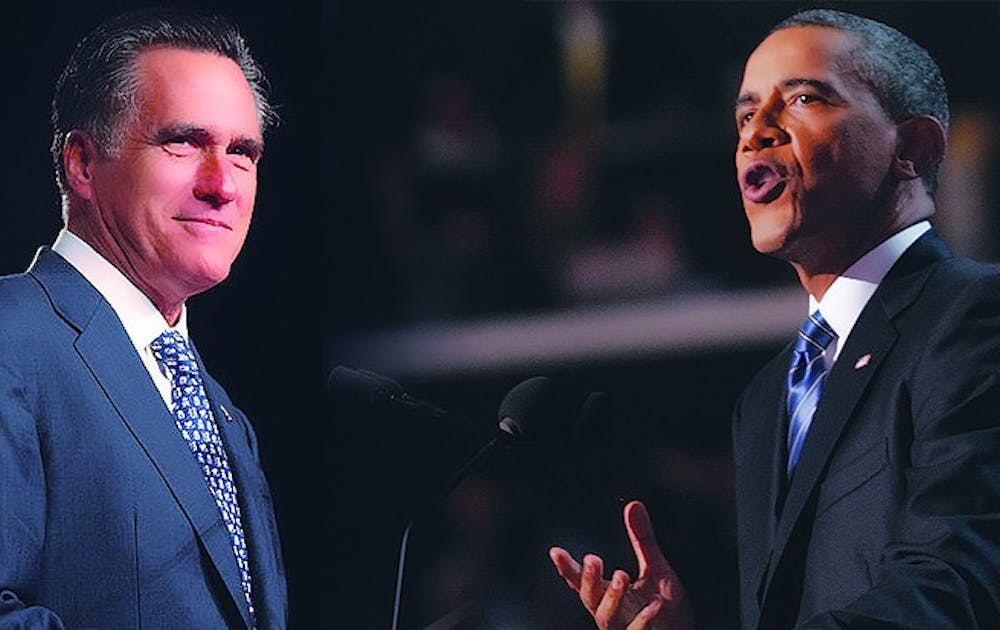As the election countdown narrows to a mere 42 days, all engines are firing on both sides of the presidential contest in North Carolina—both campaigns have pledged to stay strongly rooted in North Carolina until Nov. 6.
The campaigns of President Barack Obama and his Republican challenger Mitt Romney have both cited North Carolina as a crucial battleground state. Obama took the state by 0.3 percent in 2008, a feat he hopes to repeat this year. But Romney will need to take in order to have a chance at winning the election, said sophomore Alex Gersovitz, recruitment outreach coordinator for North Carolina Young Americans for Romney.
“North Carolina is crucial to the success of the Romney campaign,” Gersovitz said. “There are few pathways to winning without North Carolina.”
Gersovitz cited the economy as a key issue for North Carolina in the coming weeks, which is in line with the campaign’s national theme of highlighting economic issues.
There is a national strategy but not necessarily a local one, he said, noting the importance of local businesses and the recovery of the post-university job market as examples of economic priorities for Romney.
The economy will also be the focus of the Obama campaign over the next 42 days, an Obama campaign official said Monday. Obama volunteers will continue to campaign in the grassroots method that was successful in North Carolina in 2008, the official added.
The Obama campaign has 54 field offices throughout the state, whereas Romney’s campaign has 28.
During the Democratic National Convention in Charlotte, the Republican National Committee spent significant time and money running a “war room” to send out counter-messages via Facebook, tweets and other social media concurrent with convention events. The Republican National Committee also had daily press conferences during the DNC that featured key GOP members, such as Gov. Nikki Haley of South Carolina.
Democrats have also been inviting key party figures to make high-profile visits to North Carolina to maintain visibility in the state.
“Our strategy is to work hard for every single vote between now and Election Day,” said Walton Robinson, North Carolina Democratic Party communications director.
First lady Michelle Obama has taken 11 trips to North Carolina since 2009, including Wednesday’s turn through North Carolina Central University and East Carolina University. Rep. Debbie Wasserman-Schultz, D-Fla. and Democratic National Committee Chair, has also made appearances in North Carolina, speaking in Raleigh and Winston-Salem last week about the high stakes of the upcoming elections.
North Carolina’s status as a battleground state has encouraged some Duke students to change their voter registration from their home state to North Carolina.
There is a wider range of political opinions in North Carolina than in New York, said junior Noelle Ohanesian of Saratoga Springs, N.Y., noting that the outcome of the vote on Amendment One demonstrated to her the importance of registering to vote in North Carolina.
“Hopefully my vote will have more sway here,” added freshman Will Chang, of Santa Clara, Calif. “And obviously if I want my candidate to win, I’d vote in the state where my vote has more statistical significance.”
The close margin could be beneficial to the president because Romney must expend resources in a state that will only help him if he carries it, said Don Taylor, associate professor of public policy.
“In 2008, President Obama won by 14,000 votes out of 4.2 million cast—essentially a tie,” he wrote in an email Thursday. “Regression to the mean would suggest a close win for Romney in North Carolina this time. If President Obama wins North Carolina again, then that means the election has turned into a rout for the president.”
Get The Chronicle straight to your inbox
Signup for our weekly newsletter. Cancel at any time.

